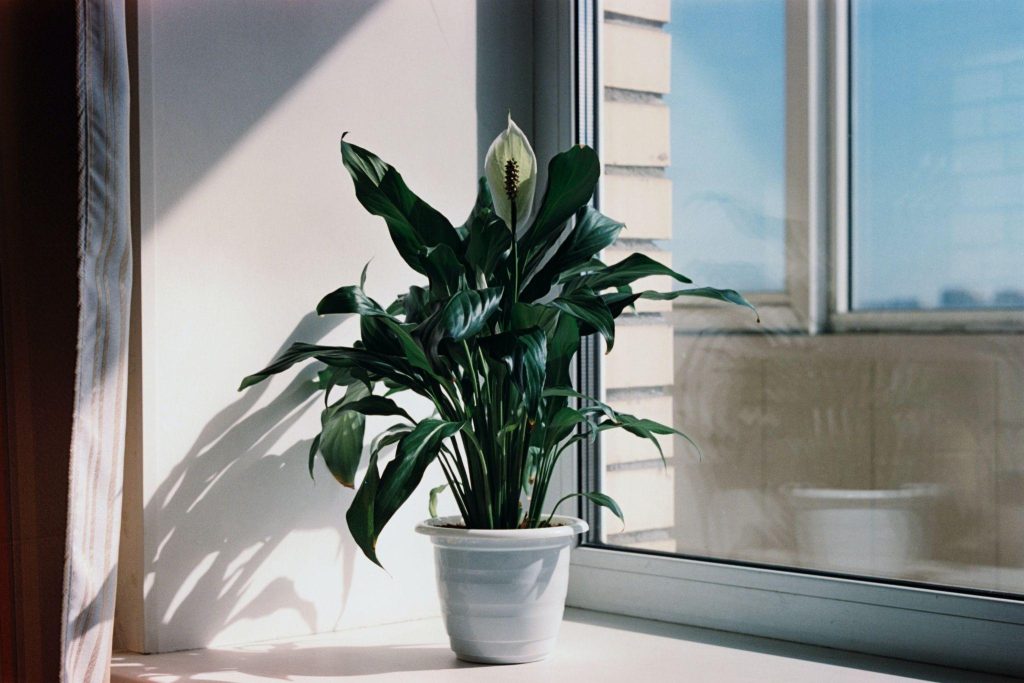Green-fingered Brits are being encouraged to prevent dry winter skin by improving the indoor air quality with houseplants.
The experts at GardeningExpress.co.uk have named seven skin-benefitting houseplants that act as natural humidifiers and air purifiers.
With central heating being one of the biggest triggers of dry skin and irritation over the winter months, it’s worth considering integrating humidifying houseplants into your living space.
Certain types of houseplants can contribute to creating a more comfortable indoor environment by adding moisture and purifying the air.
They go through a process called transpiration and release water vapour from the plant’s leaves into the air which helps regulate the humidity levels.
Plants with high transpiration rates, such as Peace Lilies and Spider Plants are best at providing humidity benefits.
Houseplants not only provide moisture but also filter the air around them by releasing fresh oxygen and absorbing harmful compounds.
This process helps eliminate airborne pollutants that may otherwise clog pores and trigger acne.
Chris Bonnett from GardeningExpress.co.uk said: “Although indoor heating systems are a winter necessity, they can have an unfortunate side effect of sapping the air of moisture and this is why many people experience skin dryness during winter.
“To prevent the skin from drying out, we recommend placing humidifying plants strategically around your living spaces to increase humidity levels and purify the air.
“From delicate Peace Lilies to tropical Areca Palms, there are plenty of houseplants to choose from, so you can opt for plants that suit your preferences and indoor decor.
“To further boost humidity, try grouping the plants together so they can create a little micro-climate and benefit from each other’s transpiration.”
Here are GardeningExpress.co.uk‘s best houseplants for preventing dry winter skin:
- Peace Lily
Peace Lilies are not only attractive but they’re also an excellent choice if you want to increase the humidity in your home. This is because they absorb and release a high volume of moisture through transpiration. Regular care, including proper watering and occasional misting, can further enhance their ability to contribute to a more humid environment.
- Spider Plant
Spider Plants are great air purifiers and humidifiers. They’re also low-maintenance and easy to care for, making them an ideal choice for those who are new to plant parenting. They can thrive in a variety of conditions, including moderate to low light, so you can even place them in rooms that don’t get much sunlight.
- Rubber Plant
Rubber plants have a high transpiration rate and are great for boosting humidity. They’re also known for their air-purifying qualities as their large thick leaves are great at absorbing airborne chemicals and improving air quality.
- Areca Palm
Areca Palm has one of the highest transpiration rates, making it an extremely effective plant for hydrating skin. Areca Palms are thirsty plants that need a lot of water and in turn they release a large volume of water vapour. They also reduce indoor pollution and their large leaves help produce more fresh oxygen.
- Boston Fern
Boston ferns are lush, feathery plants that thrive in high humidity. They’re great natural humidifiers and air filters. They can be placed in hanging baskets or on pedestals to add a touch of greenery to your home.
- Snake Plant
Snake Plant, also known as Mother-in-law’s Tongue is extremely effective in eliminating some of those invisible nasties from the air that can clog our pores. As Snake Plants are great at releasing oxygen, it’s best to place them in your bedroom to aid in the skin regenerating process while you sleep.
- Aloe Vera
Aloe vera adds moisture to the air which strengthens your skin barrier. This plant also offers the benefit of its soothing gel, which has strong anti-inflammatory properties and can be used to alleviate dry skin.


